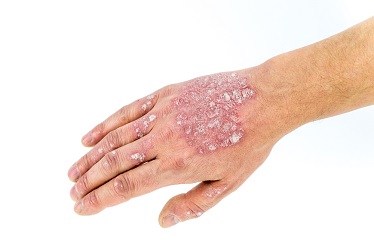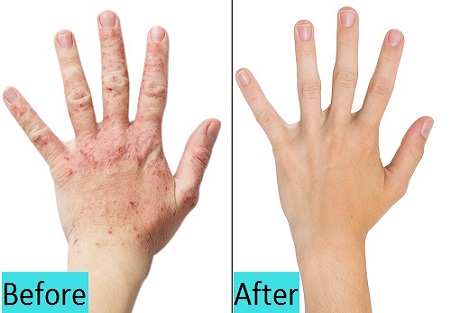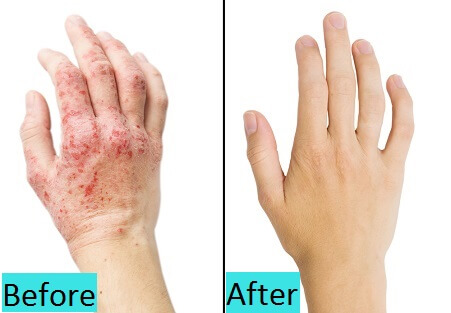Psoriasis is a long-term (chronic) skin problem that causes skin cells to grow too quickly, resulting in thick, white, silvery, or red patches of skin. Normally, skin cells grow gradually and flake off about every 4 weeks. New skin cells grow to replace the outer layers of the skin as they shed.
But in psoriasis new skin cells move rapidly to the surface of the skin in days rather than weeks. They then build up and form thick patches called plaques. The patches range in size from small to large. They often appear on the knees, elbows, scalp, hands, feet or lower back.
People with psoriasis often notice times when their skin gets worse. Things that can cause these flare-ups include a cold and dry climate, infections, stress, dry skin, and taking certain medicines. Psoriasis isn't contagious. It can't be spread by touch from person to person. In some cases it may run in the family.








